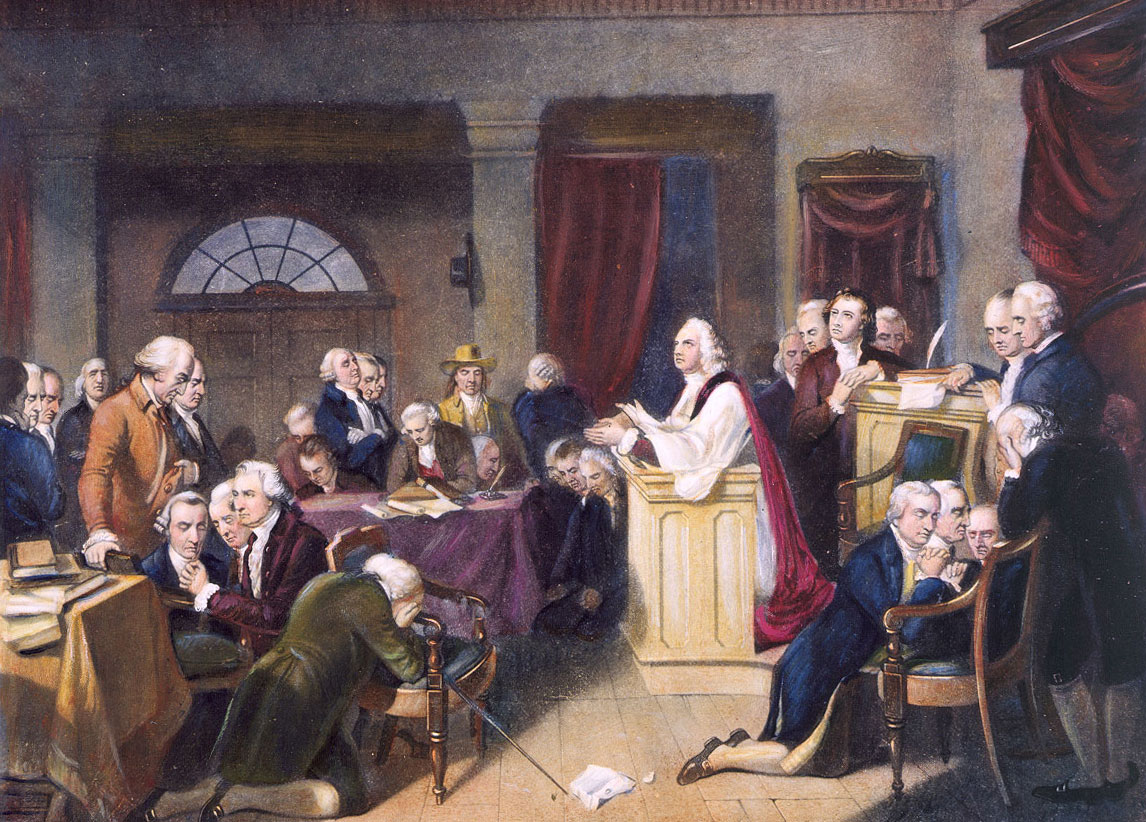October 1774: Resolution
250 years ago this week, the First Continental Congress concluded, with little decided and much hanging in the balance.
Delegates from all the colonies except Georgia, including such notables as John Adams, Sam Adams, Patrick Henry, John Jay, and Roger Sherman, and led by President Peyton Randolph of Virginia and Secretary Charles Thomson of Pennsylvania, met from September 5 to October 26 in Carpenter’s Hall in Philadelphia, and argued over how the colonies might collectively respond to the passage of the Intolerable Acts by Parliament.
They were looking for ways to resolve the situation without resorting to desperate measures. Their position is well illustrated by a letter written by George Washington on October 9 to his friend and fellow Virginian Lieutenant Robert Mackenzie, who had previously complained from his post in Boston about the Sons of Liberty and their “scandalous and ungenerous Attacks upon the best Characters in the Province… their repeated but feeble Threats to dispossess the Troops have furnished sufficient Reasons to Genl. Gage to put the Town in a formidable State of Defence … which will be shortly accomplished to their great Mortification.”
Washington replied, “When you condemn the conduct of the Massachusetts People, you reason from effects, not causes; otherwise you would not wonder at a people who are every day receiving fresh proofs of a Systematic ascertion of an arbitrary power … to violate the most essential & valuable rights of mankind; being irritated, & with difficulty restrained from acts of the greatest violence and intemperance … It is not the wish, or the interest of the Government, or any other upon this Continent, separately, or collectively, to set up for Independence; but this you may at the same time rely on, that none of them will ever submit to the loss of those valuable rights & priviledges which are essential to the happiness of every free State, and without which, Life, Liberty & property are rendered totally insecure.”
As the First Continental Congress wrapped up, it had agreed upon two important resolutions:
- If Parliament did not repeal the Intolerable Acts by December 1st, 1774, a boycott of incoming British goods would begin in the colonies.
- If the Intolerable Acts were not repealed by September 10, 1775, an embargo of outbound American goods to Britain would commence.
And they still held out hope that their grievances might be heard. They prepared statements to the people of Great Britain and America illustrating their position. And on the final day of the Congress, October 26, they sent a petition to King George III explaining their outrage. (They wrote no communication to Parliament, considering it the aggressor and too far gone to hear them.)
Finally, as they were dispersing, they agreed that they would reconvene in about six months, on May 10, 1775. Nobody could know what might happen before then. And very few might have expected that the tensions in Massachusetts might blow up into full-scale war…
